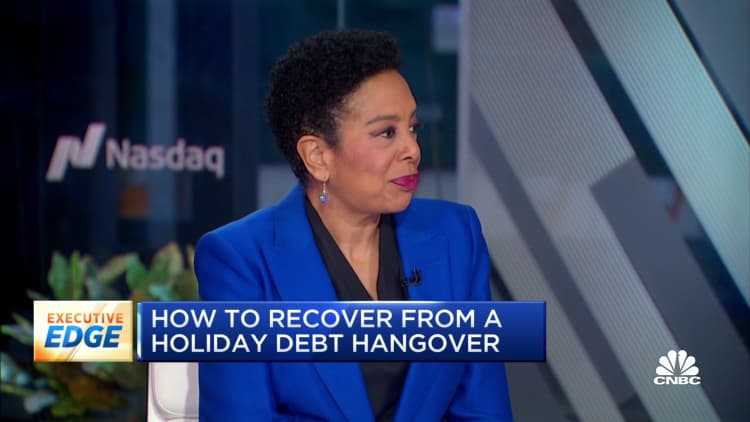
[ad_1]
Jamie Grill | Getty Images
It’s not easy to prioritize financial goals, especially when choosing between two essentials in an unsteady economy: saving for retirement or building your emergency fund.
While there are higher 401(k) contribution limits for 2023, you shouldn’t skip rainy day savings to max out your retirement plan, experts say.
Indeed, more than half of savers are prioritizing short-term financial goals in 2023, including emergency savings, according to a recent study from Fidelity Investments. And a recent Personal Capital survey found building an emergency fund is a top priority for 2023.
More from Personal Finance:
Extra time for spending 2022 funds in your health-care FSA
You can avoid a ‘surprise tax bill’ with a fourth-quarter payment
How to pay down credit card debt as APRs head to new highs
“It’s always a balance,” said certified financial planner Catherine Valega, founder of Green Bee Advisory in Boston. While maxing out your 401(k) should be the goal, your emergency savings is also important, she said.
Leslie Beck, a Rutherford, New Jersey-based CFP and owner of Compass Wealth Management, said she has a “rule of thumb” for how to decide between retirement and emergency savings.
She always recommends contributing enough money to your 401(k) to get the full company match. Then, if your emergency savings are short after that, you should “definitely” divert the funds, she said.
How to know if your emergency savings is enough
Comstock Images | Stockbyte | Getty Images
If you’re single, Beck suggests keeping “close to a year’s worth of essential expenses” to cover necessities such as your home, food and utilities.
“You should have a year’s worth [of essential expenses] in case there’s a downturn in the employment market, which we may or may not be heading into,” she said, noting that it often takes longer than expected to find a job after a layoff, especially for higher-compensated employees.
However, her recommendation changes for dual-earning couples. “I cut that back to six months, maybe even three months, depending on what industry you’re employed in,” she said.

And there may be some flexibility if you have access to a home equity line of credit, which may be another source of cash for emergency expenses, Beck said. But you need to be “very judicious” when tapping equity because borrowing after a job loss can put your home at risk, she said.
Valega suggests an emergency fund of 12 to 18 months of expenses, admitting that she’s “more conservative than most,” but says the exact number depends on your career sector and personal preference. For example, she may encourage clients in tech to set aside more than heath-care workers.
[ad_2]
Source link